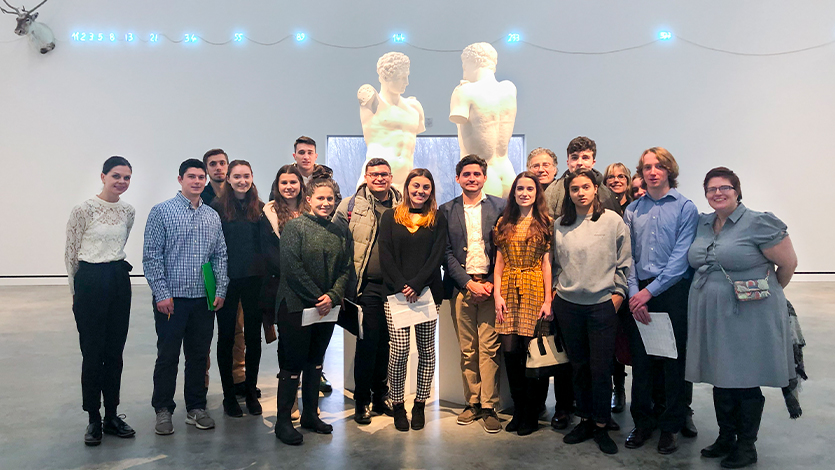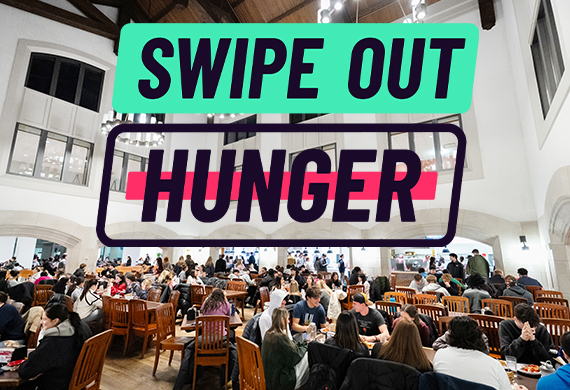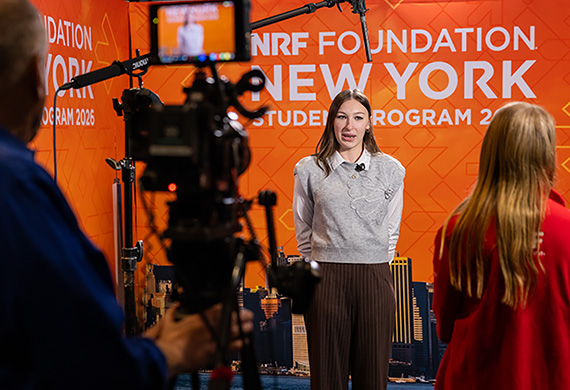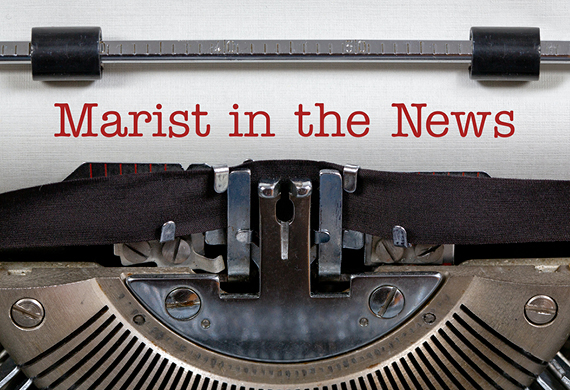Italian Program Student Conducts Community-Based Learning Project on Arte Povera Movement

April 6, 2022 — Tucked in the mountains, just south of Marist College in Cold Spring, NY, one will find Magazzino, a museum and research center dedicated to Italian art. Aliza Taylor ‘23, a student in Dr. Marina Melita’s Advanced Italian course spent a semester collaborating with Magazzino's staff to complete her community-based learning project on the Arte Povera movement. When asked how this research project has strengthened her personal and academic experience at Marist, Taylor said “This research project exposed me to different cultural aspects and periods in Italy. As an Italian minor, I want to continue to learn more about Italy and its cultural differences.”
At the beginning of each semester, students in Dr. Melita’s Advanced Italian course visit Magazzino to tour the museum in Italian and choose a work of art that will serve as the focus of their semester-long research project. This community-based learning project involves working with museum staff to research the work of art, artist, and the Arte Povera movement.
The Arte Povera movement took place in Italy in the 1960s and 1970s and was characterized by its use of unconventional art materials. These pieces challenged the traditional expectations for what was viewed as acceptable art materials and expanded the limits of Italian art galleries. Magazzino is well known for its Arte Povera exhibits and has proven to be a great resource for Marist students to gain in-depth knowledge on the movement and learn more about an Arte Povera piece of their choice. Students in Marist's Italian program have worked closely with Magazzino Italian Art since its opening in 2017.
“Since its opening, Magazzino’s presence in the Hudson Valley has been both an invaluable resource for and a great supporter of the Marist Italian program. Over the last four years, we have worked with its team to create a community-based learning project, attend special Italian-specific events, and to place several students as interns at the museum,” said Lecturer in Italian, Dr. Marina Melita. “Through these internships, our students, primarily Italian Majors and Minors, engage with the artwork and the artists, gain professional experience in a student-friendly location, and use their language skills with Italian visitors to the museum, as well as the Italian-language materials housed there. While students work or visit Magazzino, they also meet peers from other local universities, such as Bard College, which also provides interns. We are lucky to have this asset in our own backyard!”
At the completion of their research projects, the students return to Magazzino to present to their classmates, museum staff members, and visitors to the museum. This provides students with the opportunity to showcase their accomplishments, connect with the community through engaging scholarship, and apply their Italian language skills.
Community-based learning projects often have a lasting impact on students’ plans for the rest of their college career and beyond. Taylor described how participating in the Arte Povera research project enriched her plans for the future: “This project has affected my plans in a positive way, because it will provide me with a new perspective on Italian history, language, and culture. I can carry this new knowledge with me when I go abroad. This project has also encouraged me to do my own research on other movements in Italy.”
To learn more about the Italian Program at Marist: https://www.marist.edu/academics/liberal-arts/modern-languages/italian



